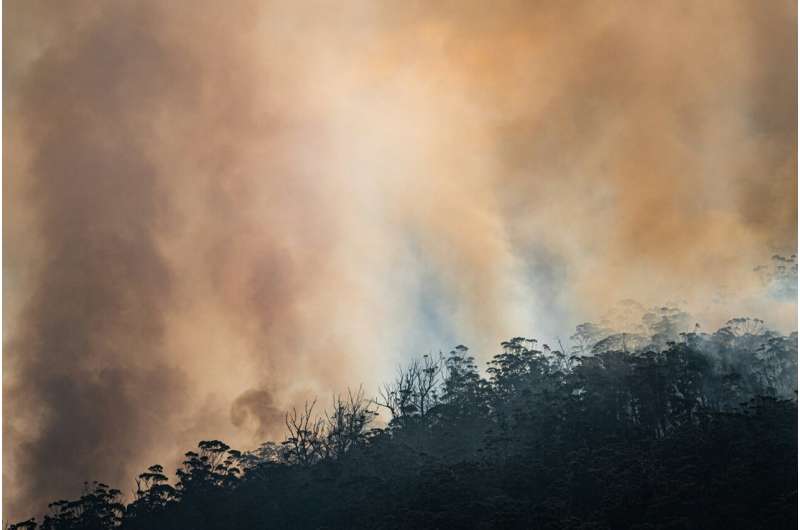Lessons from Canadian Wildfires: Bushfire Smoke and Increased COVID-19 Hospitalizations

A groundbreaking study links wildfire smoke exposure to increased COVID-19 hospitalizations, emphasizing the importance of environmental health preparedness during wildfire seasons.
Recent research highlights the potential health impacts of wildfire smoke exposure, particularly in relation to COVID-19 hospitalizations. A study led by researchers from Queensland University of Technology (QUT) analyzed data from New York State following the 2023 Quebec wildfires, which released significant amounts of PM2.5 (fine particulate matter) into the air. The study found a strong correlation between increased levels of wildfire-related air pollution and a rise in COVID-19 hospitalizations, especially two weeks after the smoke spread across the border. Each incremental increase in PM2.5 was linked to up to a 7% higher risk of hospitalization.
PM2.5 particles are tiny pollutants capable of deeply penetrating the lungs, often worsening respiratory conditions like asthma. The research team used sophisticated statistical models to assess hospitalization trends across 62 counties in New York, revealing consistent upward trends following wildfire smoke events. These findings emphasize that severe environmental events, such as wildfires, can elevate the risk of infectious disease complications.
The study, published in the Journal of Public Health Research & Practice, underscores the importance for public health authorities, especially in Australia approaching its bushfire season, to prepare for potential spikes in COVID-19 cases due to ambient air pollution. The authors advocate for increased environmental health research, particularly studies that include individual-level data, to establish causality between wildfire emissions and infectious disease risks.
Led by Dr. Javier Cortes-Ramirez, the research also involved experts from Griffith University and aims to inform policy-making around air quality and emergency health services. The findings are intended to aid hospitals and health agencies in planning for increased healthcare demands during and after wildfire events.
This research serves as a crucial reminder of the broader health risks posed by natural disasters, especially for vulnerable populations. It highlights the need for integrated strategies that address environmental and public health concerns to mitigate future risks.
Stay Updated with Mia's Feed
Get the latest health & wellness insights delivered straight to your inbox.
Related Articles
FDA Approves Wegovy for Treatment of Serious Liver Disease
The FDA has approved Wegovy, a GLP-1 receptor agonist, to treat serious fatty liver disease (MASH), offering new hope to millions affected by this condition. Learn more about how this groundbreaking approval could impact liver health management.
Identification of Mutational Signatures and Tumor Activity in Chinese Patients
A groundbreaking study reveals the mutational signatures and tumor activity in Chinese cancer patients, highlighting similarities and unique differences compared to Western populations. This research enhances our understanding of cancer etiology and potential treatment strategies.
Unusual Soot-Related Particle Accumulation Found in Lung Cells of COPD Patients
New research reveals that lung cells in COPD patients exhibit abnormal accumulation of soot-like carbon particles, contributing to inflammation and lung function decline. Learn about the implications of environmental pollutants on respiratory health.
Why ChatGPT Can't Replace Medical Diagnoses: Key Insights
Expert insights reveal that while ChatGPT can assist with medical information, it is not equipped to diagnose health conditions accurately, emphasizing the importance of consulting healthcare professionals.



